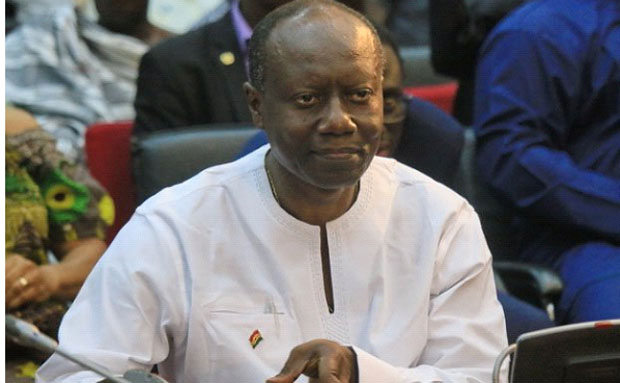Ken Ofori Atta, Finance Minister
The first edition of the Business Barometer: Ghana CEO Survey carried out by Oxford Business Group (OBG) indicates robust confidence levels among senior executives, suggesting that reforms aimed at steadying the economy are beginning to yield results.
As part of its year-long survey, the global research and consultancy firm asked over 100 C-suite executives from across the country’s industries a wide-ranging series of questions on a face-to-face basis aimed at gauging business sentiment. The results of the survey are now available to view in full on OBG’s Editors’ Blog.
The vast majority (91%) of respondents surveyed described their expectations for the local business environment this year as positive or very positive while, in answer to a separate question, 80% thought the company they represent was likely or very likely to make a significant capital investment over the same period.
OBG’s survey was undertaken as the phased implementation of new policies aimed at galvanising growth and diversifying the economy away from hydrocarbons gathers momentum.
When asked which policy they would like to see prioritised to support growth, almost two-thirds (62%) of respondents put improving the business environment at the top of their list, well ahead of administrative reform and reducing the deficit, which came second and third respectively and were both selected by less than 15% of those surveyed.
Asked which external factors they felt could weigh most heavily on growth, some 37% of business leaders interviewed cited rising oil prices, indicating the key role that hydrocarbons continues to play in the national economy, followed by regional instability and easing demand growth in China.
A separate question on doing business in Ghana, meanwhile, revealed the challenges that executives sometimes face when it comes to borrowing, with 70% of those surveyed describing access to credit as difficult or very difficult.
Commenting on the results in her blog, Souhir Mzali, OBG’s regional editor for Africa, said that enhanced fiscal and monetary discipline, and debt management, combined with higher oil and gold prices had helped to boost growth to 7.9% in 2017, according to figures given by President Akufo-Addo, up from 4% in 2014.
Business sentiment had improved on the back of the positive performance, which was expected to continue, she added, with the IMF forecasting GDP growth in 2018 of 8.9% and a reduction in the public debt to 66.1% of GDP, down from an estimated 70.5% at the end of 2017.
“Short-term expansion is set to be driven not only by heightened activity in the hydrocarbons sector, but also by growth in non-hydrocarbons activities such as agriculture and ICT, in line with the government’s economic diversification objectives,” she said.
While noting the economic revival and positive knock-on effect on business confidence, Mzali pointed out that challenges, especially the concerns relating to Ghana’s business environment cited by executives in OBG’s survey, could hinder investment if overlooked.
“Looking forward, this indicates that the path towards continued growth will require greater supporting measures for domestic companies,” she said. “These will need to be addressed for future development.”
Mzali’s in-depth evaluation of the survey’s results can be found on OBG’s Editors’ Blog, titled ‘Next Frontier’. All four of OBG’s regional managing editors use the platform to share their expert analysis of the latest developments taking place across the sectors of the 30+ high-growth markets covered by the company’s research.
The OBG Business Barometer: CEO Surveys features in the Group’s extensive portfolio of research tools. The full results of the survey on Ghana will be made available online and in print. Similar studies are also under way in the other markets in which OBG operates.

About OBG Business Barometer
OBG Business Barometer: Ghana CEO Survey Copyright (c). All rights reserved.
This survey has been designed to assess business sentiment amongst business leaders (Chief Executives or equivalent) and their outlook for the next 12 months. Unlike many surveys, the OBG Business Barometer is conducted by OBG staff on a face-to-face basis, across the full range of industries, company sizes and functional specialties. The results are anonymous.
OBG Business Barometer is based on data from companies with revenue within the following parameters, among others:
• 88% of companies surveyed were private
• 40% of companies surveyed were international
• 12% of companies surveyed were regional
• 48% of companies surveyed were local
The data generated allows for analysis of sentiment within an individual country, as well as regionally and globally. Additionally, comparisons can be drawn between both individual countries and regionally. The results are presented statistically within infographics and discussed in articles written by OBG managing editors.
OBG provides this survey, infographics and accompanying analysis from sources believed to be reliable, for information purposes only.
-Starrfmonline


